
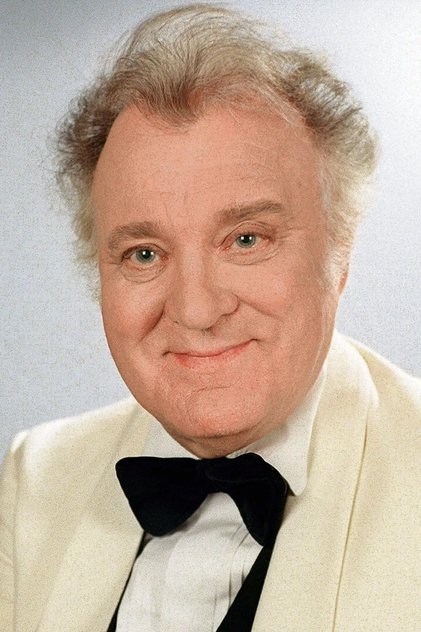
Nicolai Gedda
Born: July 11, 1925
Died: January 8, 2017
in Stockholm, Sweden
Died: January 8, 2017
in Stockholm, Sweden
Harry Gustaf Nikolai Gädda, known professionally as Nicolai Gedda (11 July 1925 – 8 January 2017), was a Swedish operatic tenor. Debuting in 1951, Gedda had a long and successful career in opera until the age of 77 in June 2003, when he made his final operatic recording. Skilled at languages, he performed operas in French, Russian, German, Italian, English, Czech and Swedish, as well as one in Latin. In January 1958, he created the part of Anatol in the world premiere of the American opera Vanessa at the Metropolitan Opera. Having made some two hundred recordings, Gedda is one of the most widely recorded opera singers in history. His singing is best known for its beauty of tone, vocal control, and musical perception.
Harry Gustaf Nikolai Gädda, who later changed the spelling of his surname to Gedda, was born out of wedlock in Stockholm to a Swedish mother and a half-Russian father. He was raised by his aunt Olga Gädda and his adoptive father Michail Ustinov (a distant relative of Peter Ustinov), who sang bass in Serge Jaroff's Don Cossack Choir and was cantor in a Russian Orthodox church. Gedda grew up bilingual in Swedish and Russian, and from 1929 to 1934 when his family were living in Leipzig, Germany, he learned German. At the age of 5 Gedda took part in a vocal quartet in the orthodox church in the city. They returned to Sweden in 1934, and the boy attended Katarina Secondary School and the Södra Grammar School. In school he learned English, French and Latin, learning Italian on his own after leaving school.
Gedda worked first as a bank teller in a local bank in Stockholm, and was obliged to support his hard-pressed parents financially; his sleeping arrangements were an alcove off the kitchen in their Stockholm apartment. One day he told a customer – a member of the Royal Opera House Orchestra – that he was searching for a good singing teacher, and the client recommended Carl Martin Öhman, a well known Wagnerian tenor from the 1920s, who is also credited with discovering Jussi Björling. Öhman was enthusiastic about Gedda and took him as a pupil, at the beginning without payment, because Gedda was at the time supporting his parents. Two months later his progress was such that he obtained a grant and then won the Christine Nilsson Prize. After a few months he obtained a scholarship, and was later able to pay for Öhman's singing lessons. At the Royal Academy of Music and Opera School in Stockholm Gedda was in the class of Kurt Bendix and Ragnar Hyltén-Cavallius from 1950 to 1952.
Gedda made his debut at the Royal Swedish Opera in Stockholm as part of the vocal quartet in the premiere of Der rote Stiefel by Sutermeister in November 1951. In April 1952, at the age of 26, Gedda made his triumphant debut in a principal role in Stockholm, performing Chapelou in Adolphe Adam's Le postillon de Lonjumeau, alongside Hjördis Schymberg. The 'Ronde du Postillon' in the opera, ("Mes amis, écoutez l'histoire"), is considered one of the most difficult tenor arias in all of opera, as it calls for a demanding high D from the soloist.
An early appraisal of Gedda's singing was offered by Walter Legge, after first hearing Gedda sing for the role of Dmitry in a planned recording of Boris Godunov. ...
Source: Article "Nicolai Gedda" from Wikipedia in English, licensed under CC-BY-SA 3.0.
Harry Gustaf Nikolai Gädda, who later changed the spelling of his surname to Gedda, was born out of wedlock in Stockholm to a Swedish mother and a half-Russian father. He was raised by his aunt Olga Gädda and his adoptive father Michail Ustinov (a distant relative of Peter Ustinov), who sang bass in Serge Jaroff's Don Cossack Choir and was cantor in a Russian Orthodox church. Gedda grew up bilingual in Swedish and Russian, and from 1929 to 1934 when his family were living in Leipzig, Germany, he learned German. At the age of 5 Gedda took part in a vocal quartet in the orthodox church in the city. They returned to Sweden in 1934, and the boy attended Katarina Secondary School and the Södra Grammar School. In school he learned English, French and Latin, learning Italian on his own after leaving school.
Gedda worked first as a bank teller in a local bank in Stockholm, and was obliged to support his hard-pressed parents financially; his sleeping arrangements were an alcove off the kitchen in their Stockholm apartment. One day he told a customer – a member of the Royal Opera House Orchestra – that he was searching for a good singing teacher, and the client recommended Carl Martin Öhman, a well known Wagnerian tenor from the 1920s, who is also credited with discovering Jussi Björling. Öhman was enthusiastic about Gedda and took him as a pupil, at the beginning without payment, because Gedda was at the time supporting his parents. Two months later his progress was such that he obtained a grant and then won the Christine Nilsson Prize. After a few months he obtained a scholarship, and was later able to pay for Öhman's singing lessons. At the Royal Academy of Music and Opera School in Stockholm Gedda was in the class of Kurt Bendix and Ragnar Hyltén-Cavallius from 1950 to 1952.
Gedda made his debut at the Royal Swedish Opera in Stockholm as part of the vocal quartet in the premiere of Der rote Stiefel by Sutermeister in November 1951. In April 1952, at the age of 26, Gedda made his triumphant debut in a principal role in Stockholm, performing Chapelou in Adolphe Adam's Le postillon de Lonjumeau, alongside Hjördis Schymberg. The 'Ronde du Postillon' in the opera, ("Mes amis, écoutez l'histoire"), is considered one of the most difficult tenor arias in all of opera, as it calls for a demanding high D from the soloist.
An early appraisal of Gedda's singing was offered by Walter Legge, after first hearing Gedda sing for the role of Dmitry in a planned recording of Boris Godunov. ...
Source: Article "Nicolai Gedda" from Wikipedia in English, licensed under CC-BY-SA 3.0.
Movies for Nicolai Gedda...

Title: Lady Macbeth of Mtsensk
Character: Sergei (singing voice)
Released: January 1, 1992
Type: Movie
A young woman, married to a wealthy man, but miserably lonely; trapped within a world ruled with an iron fist. Katerina is driven by a lust for life and for love. Her husband, though, is impotent; her father-in-law a tyrant. No wonder, then, that she longs to free herself from this yoke. When Sergei starts work on the family estate, she sees in him a chance for salvation. However, their subsequent affair marks the beginning of a descent into crime.

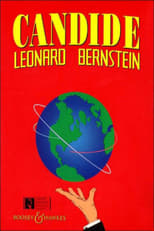
Title: Candide
Character: Governor / Vanderdendur / Ragotski
Released: October 15, 1991
Type: Movie


Title: Musik liegt in der Luft
Character: Self - Singer
Released: February 2, 1991
Type: TV

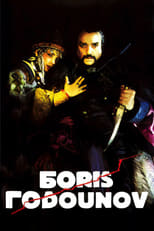
Title: Boris Godounov
Character: L'innocent (voice)
Released: December 20, 1989
Type: Movie
A possible impostor torments a newly crowned medieval czar who may have ordered the real successor's death.

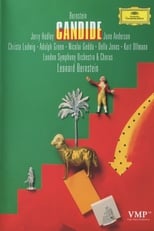
Title: Leonard Bernstein - Bernstein - Candide
Released: December 13, 1989
Type: Movie
This is the historic concert performance of the final operatic version of Bernstein's Candide. It was recorded on December 13, 1989 at the Barbican Centre, with Leonard Bernstein conducting the London Symphony Orchestra and Chorus, with a stellar cast of operatic stars gracing the solo parts. The programme lasts a full 2hrs 27 mins. It marks the end of a long and tortured journey for the musical/operetta that spent much of its first 35 years as an orphan in the musical wilderness.






Title: The Metropolitan Opera Centennial Gala
Character: Himself
Released: January 1, 1983
Type: Movie
In celebration of its 100th anniversary in 1983, the Metropolitan Opera hosts a four-hour performance uniting some of the world's most spellbinding opera singers and conductors. The event includes a ballet from Samson et Dalila and boasts incredible classical performances from Kathleen Battle, Plácido Domingo, Jose Carerras, Leonard Bernstein, Marilyn Horne, Leona Mitchell, Luciano Pavarotti and many more.



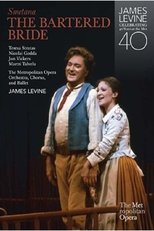
Title: The Bartered Bride - The Met
Character: Jenika
Released: January 1, 1978
Type: Movie
This MET production of Bedrich Semtana's classic folk opera boasts a superb cast, including Nicolai Gedda, Jon Vickers, Teresa Stratas, and Marti Talvela. The staging and mis-en-scene is traditional and very well done. Everyone seems to be enjoying this presentation. Although not to the same standard as today's HD productions, this is still a wonderful way to get to know this delightful opera.




Title: Anneliese Rothenberger gibt sich die Ehre
Character: Self
Released: December 25, 1971
Type: TV










Title: The Bell Telephone Hour
Character: Self
Released: January 12, 1959
Type: TV
“The Bell Telephone Hour” was a musical variety show that aired on “NBC” TV from 12 January 1959 to 14 June 1968 that showcased the best in Broadway, Classical, Concert, Jazz and Popular music each week. The series had its’ own house band appropriately named the “Bell Telephone Orchestra”. The show also had its’ own theme song being the “Bell Waltz” composed by “Donald Voorhees” who was also the show's Orchestra conductor. Some of the greatest violinists of the 1960’s performed on this show that aired in the old “Black & White” format. Some of these great violinists included “Erica Mornin”, “Isaac Stern", "Michael Rabin", "Ruggiero Ricci", "Yehudi Menuhin" and "Zino Francesacatti". From time to time some of the great singers and bandleaders of the 1960’s would perform on the show as well. Some of these were “Bing Crosby”, “Gordon MacRae”, “John Gary”, “Leslie Uggams”, “Mary Martin”, “Nelson Eddy”, “Patti Page” and “Roy Rogers”. The TV show followed on the heels of its’ predecessor with the same name on “NBC” radio that aired from 29 April 1940 to 1958 on Monday nights at 8 PM. The name of the show was derived from its’ Major sponsor “Bell Telephone Laboratories”. The TV version began airing on Friday nights at 8:30 PM once a month. It later was given it’s same time slot now airing every other week alternating with another show on the other weeks such as News shows and specials. The show time slot changed quite often over the years. In September 1960 it aired at 9 PM and in September 1961 it moved to 9:30 PM. In October 1963 it moved to Tuesday nights at 10 PM, September 1965 it moved to Sunday night at 6:30 PM and in September 1967 it made its' final move back to Friday night at 10 PM.


Title: The Firebird
Released: August 11, 1952
Type: Movie
Italian singer Mario Vanni visits the Royal Opera in Stockholm and fall in love with ballet dancer Linda Corina.
